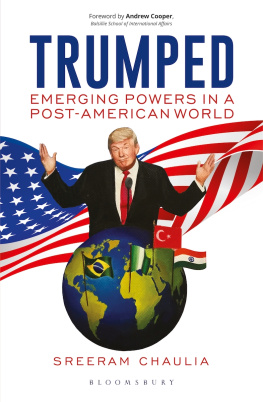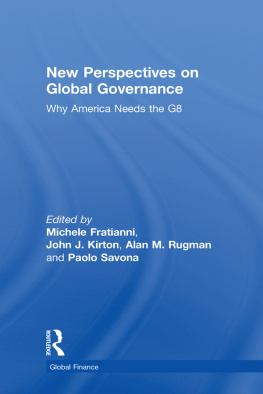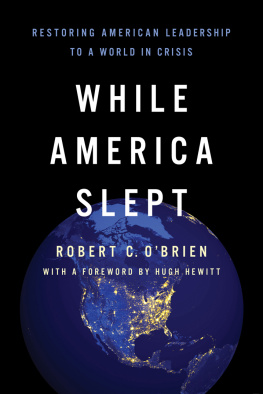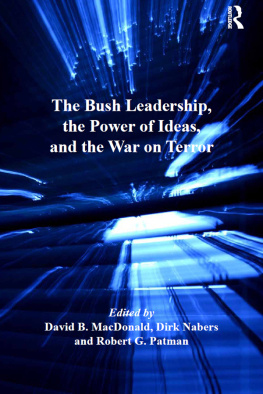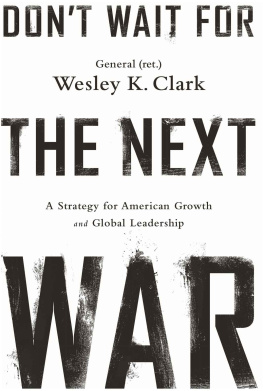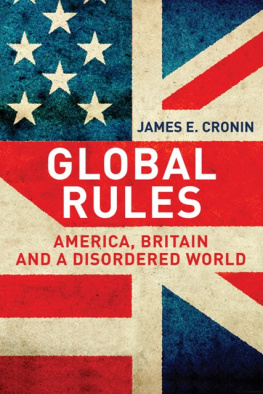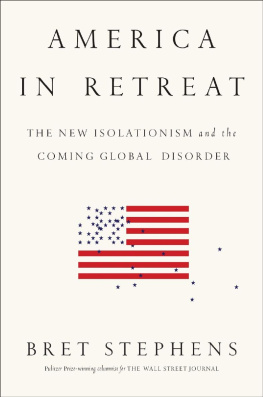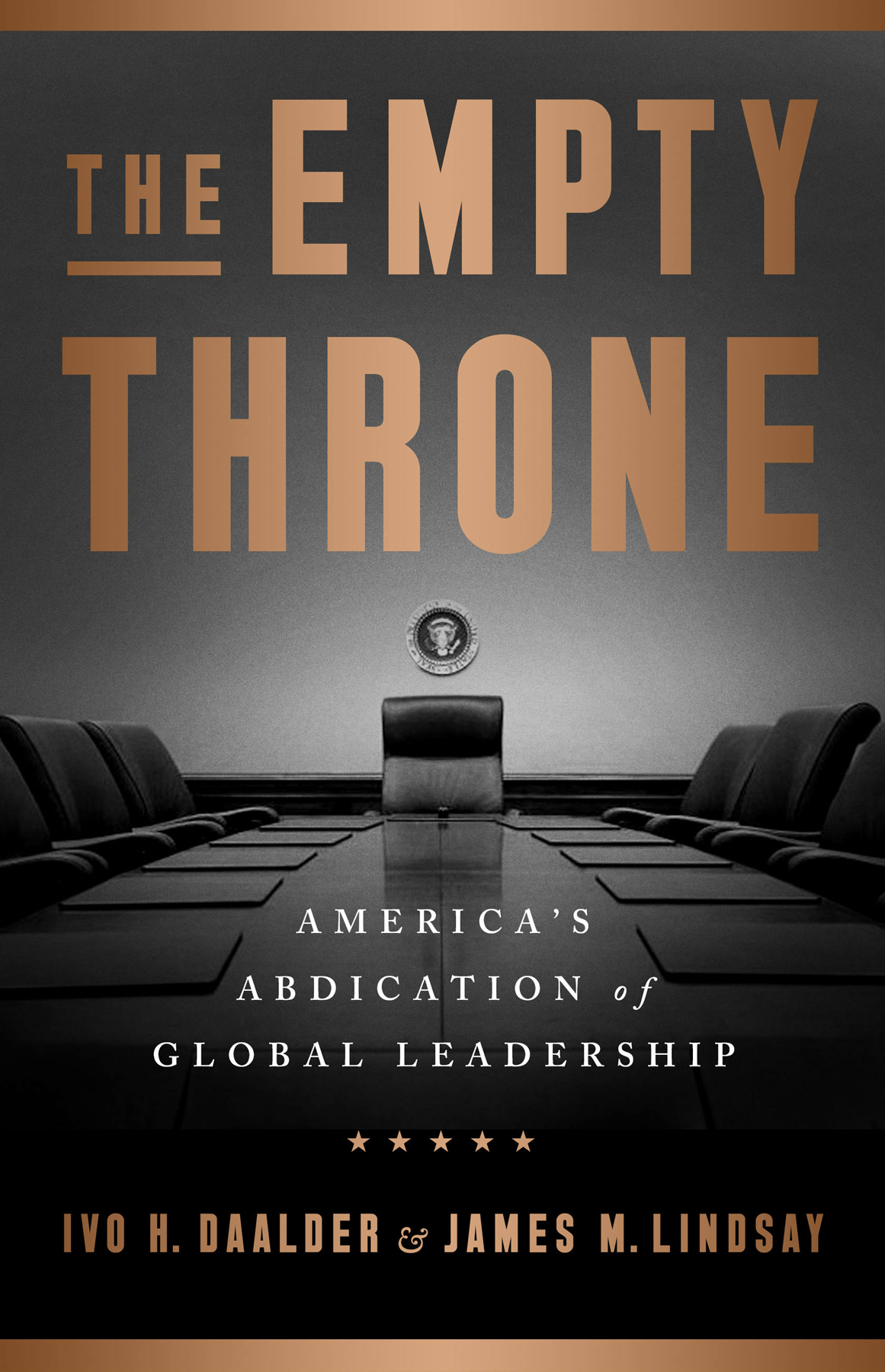Copyright 2018 by Ivo H. Daalder and James M. Lindsay.
Hachette Book Group supports the right to free expression and the value of copyright. The purpose of copyright is to encourage writers and artists to produce the creative works that enrich our culture.
The scanning, uploading, and distribution of this book without permission is a theft of the authors intellectual property. If you would like permission to use material from the book (other than for review purposes), please contact permissions@hbgusa.com. Thank you for your support of the authors rights.
PublicAffairs
Hachette Book Group
1290 Avenue of the Americas, New York, NY 10104
www.publicaffairsbooks.com
@Public_Affairs
First Edition: October 2018
Published by PublicAffairs, an imprint of Perseus Books, LLC, a subsidiary of Hachette Book Group, Inc. The PublicAffairs name and logo is a trademark of the Hachette Book Group.
The Hachette Speakers Bureau provides a wide range of authors for speaking events. To find out more, go to www.hachettespeakersbureau.com or call (866) 376-6591.
The publisher is not responsible for websites (or their content) that are not owned by the publisher.
The Empty Throne
Library of Congress Cataloging in Publication Control Number: 2018028633
ISBNs: 978-1-5417-7385-1 (hardcover), 978-1-5417-7387-5 (ebook)
E3-20180903-JV-NF
To our parents, Hans Daalder and Annie Pauline Daalder-Neukircher and James H. Lindsay and Collette G. Lindsay, who witnessed the cost of war and understood the value of American leadership.
One cannot rise to be in many ways the leading community in the civilized world without being involved in its problems, without being convulsed by its agonies and inspired by its causes. If this had been proved in the past as it had been, it will become indisputable in the future. The people in the United States cannot escape world responsibility.
Winston Churchill September 1943
R oom 2E924 in the outermost ring of the Pentagon was packed. Better known as the Tank, it is one of the most secure facilities in the US government and the meeting place for the Joint Chiefs of Staff. On the morning of July 20, 2017, though, it hosted a special guestthe president of the United States. Gathered with Donald Trump in the small, windowless room was virtually everyone who was anyone dealing with foreign and national security policy: the vice president, cabinet secretaries, assorted White House advisers, and the chair and vice chair of the Joint Chiefs of Staff. They were there to provide Trump with a crash course on American global leadership.
The long-scheduled visit was on the face of things unremarkable. Many presidents had traveled to the Tank to receive briefings and show their appreciation for Americas service men and women. But Secretary of Defense James Mattis and Secretary of State Rex Tillerson had an ulterior motive in arranging Trumps trip that day. They believed that six months into his presidency he still had much to learn about the world and Americas role in it. On the campaign trail he had repeatedly shown his ignorance about basic foreign policy issues, even as he castigated past administrations, Democratic and Republican alike, for what he called their catastrophic choices. Reaching the Oval Office hadnt miraculously given him a deeper grasp of global politics or a greater appreciation for the lousy deals and stupid commitments his predecessors had made. Instead, he resisted inconvenient facts, repeated urban legends, and contested the counsel his advisers offered. Perhaps a tutorial in the Tank on how and why the United States had pursued an outsized role around the world since World War II might persuade him that it was worth continuing to do so.
The briefers then took Trump on a tour around the globe. Using maps, charts, and photos, they laid out Americas far-flung overseas commitments. They reviewed alliances and trade deals, carefully explaining what challenges and opportunities the United States faced beyond its borders. To make their brief more compelling to a president who had made his fortune in real estate and who had committed his administration to bringing jobs back home, they stressed how Americas global leadership benefitted US businesses and created jobs for Americans back home.
The student, though, eventually challenged his tutors. He wasnt impressed with the alliances and agreements they were praising. This is exactly what I dont want, he objected.
When the meeting ended after two hours, Trump praised his briefers to the reporters waiting outside the Tank. The discussion had been great and the people at the Pentagon tremendous, he said. The job they doabsolutely incredible. That didnt mean, however, that they had dented his deep skepticism about the value of Americas military alliances and the benefits of its many trade agreements, let alone persuaded him to lead what he saw as ungrateful friends who laughed at America while stealing its jobs and wealth.
The July 20 meeting later gained fame for the pithy assessment Tillerson made of Trumps intelligence after the president left the Tank to return to the White House. Hes a fucking moron, the former Eagle Scout told a few colleagues. Tillersons blunt assessment dominated Washington conversation when it leaked months later. But the more consequential assessment, even though it drew almost no attention, was the one Trump made in the Tank as the meeting ended: the rules-based world order that so captivated his briefers was not working at all.
The overriding question for America and the rest of the world was, would Trump try to fix it or walk away from it?
I INHERITED A mess, Donald Trump complained repeatedly after becoming president. The specific challenges he faced were easy to list. North Korea was gaining the capability to hit the United States with nuclear-armed missiles. A revanchist Russia was challenging American interests in the Middle East, sowing divisions in Europe, and interfering in US domestic politics. A rising China was looking to dominate Asia and rewrite the rules of global politics in its favor. An aggressive Iran was seeking regional hegemony in the Middle East. The Islamic State controlled parts of Iraq and Syria, inspiring jihadists around the globe. The list went on.
Underlying these problems, however, was a broader, more fundamental one: the world that the United States created in the aftermath of World War II and that Mattis and his colleagues explained to Trump in the Tank that July day was fracturing. Franklin Roosevelt and Harry Truman had wisely steered the United States away from repeating the grave error it had made in turning its back on Europe after World War I. Determined to chart a different course and confronted with a new mortal adversary in the Soviet Union, they defined Americas interests globally and sought to lead other countries in creating a world that would be more conducive to US interests and valuesand to countries that shared them. That world would be built on advancing collective security; opening free markets; and promoting democracy, human rights, and the rule of law.
It was a radical strategy. For millennia world politics had been driven by the logic of dominationThe strong do as they will; the weak suffer what they must, as the ancient Greeks put it. The United States could have done the same after 1945. It stood atop the world, towering over both its vanquished enemies and weary allies. But it didnt. It instead created a system based on the logic of cooperationcountries willing to follow Americas lead would flourish, and as they did, so too would the United States. The country would do well by putting aside narrow nationalism and promoting a broader common good. We could be the wealthiest and the most mighty nation, President Dwight Eisenhower later wrote, and still lose the battle of the world if we do not help our world neighbors protect their freedom and advance their social and economic progress.


